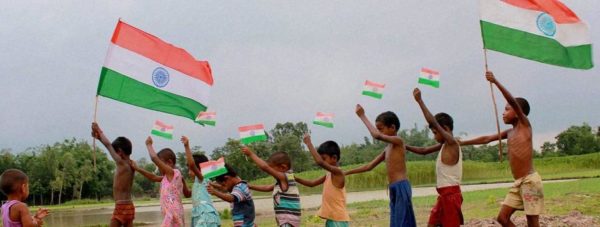“Sabhi padheb to ladeb kaun”(if everyone starts reading then who will fight), a stranger asked Ashok Kumar Yadav mockingly while he was selling books at a Maoist infested village in Chattisgarh. But that could not diminish his spirit of reaching out to the people in far-flung rural areas with books.
Yadav is a part of the mobile book exhibition team of National Book Trust (NBT). He has been travelling from one countryside to the other for the last 26 years exhibiting and selling books at a nominal price to readers who have minimum resources and means to acquire them.
“Every month we go out to a selected district and move from one village to another with a van full of freshly printed books. We nearly spend a month in each district exhibiting, selling them and return to fill up the van and then move to another again,” said Yadav.
Mobile Book Exhibition is a part of NBT’s initiative to inculcate reading habits among people, a tradition followed since 1957, its hey days. On 2017 this age old tradition will turn 60. Though often overshadowed by mega events such as world book fair organised with much fanfare by the trust under the Human Resource Ministry, Dr Rita Chowdhury, Sahitya Academy Award winner
Assamese writer and director of the trust, says that mobile book exhibitions have been tremendously popular among the rural masses because of the low prices of the books as well as its high-quality publishing.
“Every book is written by an expert in the concerned field and the price range starts from as nominal as Rs 12,” she informs.
However, though the books are priced very nominally, the mobile outlets sell books worth millions every year, says Baldeo Bhai Sharma, chairman of the trust. “Our mobile exhibitions have set a record of selling books worth more than Rs 12 lakhs in tribal villages of Odisha in just two months time. This has become possible because we see our work as a duty to the nation and to educate the new generation,” he said.
The trust has 11 such vans and more than 40 staffs dedicated to organise such exhibitions.
For those like Yadav, mobile exhibitions are not only a job but something that adds value to their lives.
“While in an exhibition, we often miss a Karva Chauth or a Chhath Puja at home. But the realisation that the rural people would have never received those books hadn’t we reached out to them, compensates our pain by giving a sense of new meaning to our life,” he says.
In a recent article published by Amit Kapoor, chairman of Institute for Competitiveness, and Deepti Mathur, a researcher at Social Progress Index for India, it has been said that despite India’s speedy growth in terms of information and communication technology, the country remains an underperformer with only 18 percent of its population was accessing internet in 2014 as per a world bank study.
The digital divide that accounts for the disparity in knowledge and information between urban and rural India is bridged by mobile book exhibitions to some extent.
Besides, mobile book exhibitions have become a medium to infuse patriotism among the young minds in rural India. “We publish biographies of patriotic heroes across all regions of the country. These books available in more than 40 languages are very popular among the young generation in rural India,” Dr Choudhury said.
While visiting rural parts of India many in the mobile exhibition team feel the existence of divisive forces at work to disintegrate the country from the bond of unity.
“The emotion of patriotism that such books emancipate have a counter effect on such forces. These books become a binding force for all of us,” Yadav said.
Adding more to this cause, the National Book Trust has come up with graphic novels on the lives of war heroes. “Based on the true stories of the heroes who laid their lives for the country, these novels have turned out to be a craze among children. Though presently, they are available only in English and Hindi, given their popularity, we are planning to translate them into other Indian languages too,” says Dr Choudhury.
Satpal Singh, another member of the mobile book exhibitions team, remembers how all the graphic novels were sold out in the very first village his van stopped in Madhya Pradesh.
The mobile exhibition team hopes that these books will be an equal craze in the insurgency-hit villages too, where once Yadav was mocked by a stranger by asking “if everyone starts reading, then who will fight”.



Leave a reply